The Apartment Bartender, Back to School with Ale-8-One and our Top 5 Bourbon Influencers to Follow.
State of Social (July 2019)
State of Social (June 2019)
Twitter Lists: Marie Kondo that Twitter Feed
The Day Keebler Dropped an "F" Bomb
There are some foods you'll always associate with your childhood. E.L. Fudge cookies is one of those for me, so you can imagine my surprise when this tweet came up in my timeline.
Was it a mistake? An intern gone rogue? A Fig Newton hack? No, it was promoted. Gasp. Ernie Keebler just tweeted "WTF." Sure, he's pretending it's "Where's the Fudge", but that's not where my mind went. Who knew this little elf had it in him?
Which brings us to content strategy on social media. There's an unspoken rule that brands tend to have more leeway on social. They can push boundaries, talk more frequently and have more fun. With all this creative content floating out there, they're also forced to find new ways to break through the clutter. Often, content creation becomes a balancing act between creating engagement and staying on brand.
I'm not saying Ernie crossed the line, but I am saying the elf I once knew, would never have said such a thing.Maybe that’s the point. Keebler sales could be down and they could be targeting angsty tweens. If that's the case, this post makes total sense.
To find your balance, I recommend asking yourself these questions:
- What are the guard rails for my brand on social? How far am I willing to go?
- Is this relevant to my target audience or am I talking to people who will never buy my product?
- How does this piece of content help me achieve my larger marketing objectives?
Don't get me wrong, not every post is meant to drive sales. It’s okay to poke fun and entertain. That’s part of what makes social, social, but it is a good reminder that social media is ultimately an extension of your larger marketing plan. If you treat social as a stand alone activity too often you may find yourself quickly saying “FML”.
5 Tips for a Successful Social Media Contest
Using Twitter Cards for Coupons
Social Media Advertising: What You Need to Know
Social Media is constantly evolving, sometimes this works in businesses' favor and sometimes against. Facebook’s latest move to decrease organic reach is a blow to many marketers but it should also be a wake up call – get ready for pay to play. I liken it to when one airline charges for baggage, opening the flood gates for others to do the same. Pretty soon all networks will require some sort of ad spend, and for those who want to stay in the game they’ll need to learn the basics of social media ad buying. After all...what’s the point in creating content that nobody sees?
- Facebook: The Promoted Post versus the Like Ad. Facebook offers several different type of ad campaigns but at the heart of it all the ads either work to drive people to your page to become a fan or to increase the reach of your content.
- The Promoted Post: Use this ad when you want to get relevant content in front of fans and non-fans – a special deal on your burger, a new product you are rolling out or a service you want to highlight. This type of ad helps drive action. Think of it as a more short-term play and remember you can leverage the data Facebook has on its users to reach people who haven’t even liked your page. Be sure to set the right interests to get the most out of your promoted post ad budget. If you are going to interrupt someone's newsfeed you better make it relevant.
- The Like Ad: This ad is becoming less useful as the game has changed with the decrease in organic reach. However the Like Ad may still be good for general mass awareness - (ie) here’s what my company does versus here is a specific deal. If Facebook changes the game again and increases organic reach, the number of acquired fans may become more important once again. You just never know.
- Twitter – Twitter follows Facebook’s lead when it comes to advertising offering similar products to the Promoted Post and Like Ad.
- Promoted Tweet: Much like a promoted post on Facebook a promoted tweet is best used for a specific call to action, a more short term play. Use a promoted tweet to drive traffic to a website or to promote a contest, for example. This ad function basically tells a user – we want you to pay attention to (insert marketing program) now, and we’re willing to pay to get it in front of you. You can promote a tweet to followers and non-followers. Remember to select the right interests and demos to keep it relevant though.
- Promoted Account: This is comparable to a Like Ad and is a long-term play. Get people to follow you and they will see your content on an ongoing basis. Unlike Facebook, Twitter doesn't have immediate plans to limit reach to a brand’s followers. That could always change as Twitter and Facebook morph more and more into the same type of network, but for now your tweets go uncensored.
Both of these ad platforms are self-service. The two musts for setting up an ad buy: 1. Access - you must be an admin of the Facebook page or have the username/password to the Twitter account in order to run a campaign. 2. Payment – You need to have a credit card tied to that specific account (for Facebook this is set up through your personal account, for Twitter it is through the brand’s page). More tips to come…what questions do you have about social media advertising?
How Much to Pay for Social Media Support
As a social media marketer I find myself dabbling in all areas of marketing from copy-writing to customer service to design and media buying. Often a good social media marketer has to take on several roles to run a page successfully. And a really good social media marketer knows when to outsource the areas that just aren't his or her forte (insert graphic design here for me). Sometimes there will be the dream client with a load of great information already packaged in bite-sized 140 character nuggets, tons of beautiful imagery and a specific ad budget set aside for promoted posts, but most often, this isn't the case. Usually your social media marketer is going to have to pick up the slack where your creative assets fall short.Herein lies the problem - you can't pay as much for a well-designed Facebook photo as you would for a magazine layout, yet visuals are key on social. You can't pay as much for a well-crafted tweet as you would for your brochure copy, but pumping out content frequently is a must. You can't pay an hourly rate to watch your pages around the clock, yet we live in a 24/7 world. To pay the same prices you've been paying for traditional media on social would be outrageous, but in some ways you need more support than ever - more content, more coverage, more "always on" advertising to feed the hungry Facebook beast.
Should you throw in the towel now? No. There are those of us out there who are coming up with social media packages every day which offer realistic pricing. We're figuring out what content already exists that we can repurpose, how many customer replies on average you'll get a week and the most efficient way to spend your ad dollars to extend your reach.
It's the wild west out there in terms of pricing and there is a range. Talk to several companies and if someone is selling you social media services for what seems like an incredibly low rate be sure to ask them these questions.
- How many posts a week will you create? Do the posts include visuals?
- How many days a week will you monitor my page?
- If I run an ad campaign will you set that up?
- Does this quote include any reporting/measurement?
- How do you plan on using social to help me meet my business goals?
The social media marketer of today is a hybrid marketer merging a variety of talents in order to create content on the go. If you're getting your social for the low low cost of $99/month, there's probably something wrong.
Do you really need Facebook ads? Yes.
Remember when Facebook ads used to be a nice to have? If you want to reach even a third of your fanbase those days are over. As Facebook decreases the organic reach of pages you can expect less than 10% of your fans to see your content. Here are a few strategies for tackling the ever decreasing organic reach.
- Budget for ads. Simple enough. You need to carve out a certain amount of dollars to get the content that matters most in front of your fans. Whether that be specials sales or a new product. Consider boosting at least one post weekly to keep top of mind. The good news is you don't have to throw thousands of dollars behind a buy, depending on your audience size, sometimes $5 a post will do.
- Diversify. Sure Facebook-owned Instagram will probably follow suit in a year but in the meantime see what kind of organic exposure you can gain. Twitter has an ad product but as of now they aren't "editing" your stream the way Facebook does. That said the Twitter stream moves so quickly it self-edits in a way. Pinterest is testing ads and favoring those with a bit of development prowess - rich pins rule - but you don't have to advertise at this point in order to get seen.
- Create content your fans want to share. Even if a mere 5% of your fanbase is seeing it, if your content is good that 5% may share expanding your reach.
Social Media Demographics - 2014
The first step in launching a social media presence is to select the right network. At the end of the day you want to be where your audience is spending time, which means taking a look at a variety of factors including demographics. The Wall Street Journal reported on a recent Pew Research study breaking down the various networks by ethnicity.
- You'll see Facebook is pretty representative of the overall U.S. Internet population.
- Instagram and Twitter however pop for being a bit more diverse.
Be smart about your social presence and be where your customers are spending time.
Facebook and Twitter - the Conversation Bandwagon
I’m a firm believer that you should treat your Facebook and Twitter content differently. Don’t link them up. They are two different audiences and two different platforms. That’s just being lazy, no matter how much you tell yourself you’re being efficient.My belief was confirmed as Valentine’s Day rolled around and then Mardi Gras. Something struck me as I saw brands and people posting about the various holidays – on Twitter it benefits you to join in on the conversation, while on Facebook it can hurt you to be the same.
Here’s why: If there are 30 posts referencing Valentine’s Day on Facebook your post may very well be tucked into a grouping of all the others who posted about Valentine’s Day. Facebook groups similar topics together on your newsfeed. Great for the user but for a brand trying to break through,not so much.
Twitter is totally different. If Valentine’s Day is trending because so many people are talking about it, you should leverage keywords like Valentine’s Day. People who currently don’t follow you but are searching the topic or clicking on the trending topic, will then find you.
Long story short – find ways to stand out on Facebook to get your spot in the newsfeed, and find ways to jump in on Twitter to be a part of the larger conversation and gain more exposure.
Just another reason you should really treat your Twitter and Facebook management differently.
Experiencing 9/11 in a Pre-Social Media World
As we approach the 10th anniversary of 9/11 two things struck me - 1. How would it have been different if social media had been around? 2. I still was carrying a lot of emotion when it came to 9/11.Everyone has a story of where they were when 9/11 happened. It didn't matter if you lived in Manhattan or Des Moines, Iowa, your world suddenly stopped that day. I had just moved back from New York City to my hometown of Chicago a month before it happened. I did know people who lost loved ones from 9/11 and I did feel a sense of guilt for leaving the city behind.
I found out about the attacks when my father called me at work. He had been home watching the news and called when the first tower was struck. I kind of brushed him off because I was busy and had no idea the impact of what he was talking about. He called back when the attacks continued and I began to worry because his voice was wobbling. After all dads don't cry often. At least my Dad doesn't. I remember hanging up the phone and watching the office file one by one into the conference room where there was a TV. We were all watching in horror before they made the announcement to evacuate the building. There was a mad rush as we tried to get away from the tall skyscrapers of downtown to the train station. It was the longest elevator ride down 21 floors I had ever experienced.
Once home, I remember trying to call my friends back in New York and not being able to get through to any of them. All the phone lines were tied up and at the time texting never crossed my mind. It was a helpless feeling to not be able to connect.
Fast forward 10 years, and I truly believe that if I received the same call from my father today, Twitter would have been one of the first places I checked for news and Facebook the first place to check on my friends. Imagine going through half your phone list calling them one-by-one versus scanning a newsfeed and knowing instantly. Sure Facebook could feel less personal then a phone call but at that time it wasn't about being personal it was just about knowing he or she was alive.
We've seen how people have used social media to connect over and over when disaster strikes from cleaning up cities post riot in London to posting a lost and found on Facebook after tornadoes struck the South. Social has allowed us to organize quickly, connect no matter what the distance and "see" the disaster firsthand through the tweets, posts and pictures of those on the ground.
Part of me is glad social wasn't around when 9/11 hit because it was so horrific. Part of me wish it had existed so I could have received more answers more quickly. Either way I'm taking time to deal with some emotions (to feel, not wallow) on Sunday and to be grateful for all the good that has happened these last ten years.
How do you think 9/11 would have been different if social media was around?
Using Twitter to Gain New Business
As social evolves, businesses and organizations are becoming more savvy on how they use social to reach goals. Here are two ways to use Twitter to get new business:The Passive Approach: Position yourself as an expert to get referrals. Follow others in your field, create an industry specific list, tweet from conferences, share news articles on relevant topics. Be the expert of whatever it is that you're passionate about. It's important to try to be specific about your expertise, so you can make yourself easy to find. If I'm a lawyer then don't just talk about law in general but make your Twitter handle reflect the type of law you practice and the industry you focus on.
The Aggressive Approach: Go find your customer.The search function is highly underused by most companies in their Twitter strategy. Not that you want to cyberstalk people by any means, but it would be nice to find people who fit your customer profile and let them know you are out there.
If you are a restaurant with a focus on healthy, low-cal, fresh food , search for people in your area who are tweeting about exercising, use the term “fit” or perhaps even “diet.” Reach out to them by following with the hopes you’ll peak their interest and get a follow back. It’s not about spamming someone, it’s about delivering content to someone who has similar interests and has given you permission to share in those interests via a follow.
What other ways have you seen Twitter used to gain business?
Social Media: Dealing with Non-Believers
While pitching new business I've realized that people have very different perceptions when it comes to social. I'm sure people had these same questions when PR first came into play and perhaps even advertising. The age-old "do we have to do that? I think we can make do with what we've always done" will always be some people's attitudes.But social media is at a place and time where it is now at least being talked about, thought about, shunned by some and embraced by others. Here are three different attitudes toward social and my suggestions for approaching them whether it is new business or upper management.
There are the believers. They've seen how social media can build loyalty, handle customer service issues and transform relationships. They understand that social media is most powerful when it works hand in hand with traditional efforts. They don't feel threatened, they embrace it and dive into the data.
Advice: For these folks, make sure they set realistic, measurable goals tied to business sales that can make other non-believers in the company understand. It's important that the entire organization gets behind social media and integrates it into advertising, research, etc.
There are those who are still on the fence. You can hear them saying: "Okay, so this is more than a fad, but I'm not sure it really does anything for my bottom line. Seems like a bunch of people wasting time online."
Advice: Show them what people are saying about their brands online. Explain how the word of mouth newsfeed works. Too often we assume people know and understand the impact of a brand/business mention on social.
And there are the anti-social. I'm not saying they are hermits, I'm just saying you won't find them using a hashtag anytime in the near future.
Advice: Do what you can to get them on social media. Without getting your hands dirty, social is a hard thing to wrap your head around no matter how many presentations you sit through. There is a a-ha moment that happens somewhere between a poke on Facebook and claiming a deal on Foursquare.
Any other advice you'd like to share?
Gottfried and Chrysler Twitter Mishap
I feel for the social media agency rep who was fired by Chrysler this month for writing disparaging remarks about Detroit. That rep not only lost his job but his error was smeared across the traditional news. Gilbert Gottfried also caught heat this month when he made jokes about Japan. While wrong, he is a comedian and comedians tend to push the line on current events and topics we don't talk about. It's kind of what they do. So when Aflac axed him, his Twitter jokes had cost him a pretty penny I'm sure. (I had no idea he was their spokesperson in the first place).So what can you do to make sure you don't end up with a Tweet mishap? Here are a few tips:
1. Put your client/work Twitter handle on a separate app then your personal Twitter account. With so many Twitter apps out there, you have plenty of options and you can make sure you don't have the wrong account selected before you tweet. It's actually quite easy to do, especially on mobile.
2. Know who is handling your account. I've heard too many people say: "We'll just give this duty to an intern." Would you let an intern produce your TV ad? How about design your point of sale? Twitter, or any social media for that matter, can reach large amounts of people quickly, and traditional media seems to love to highlight social mishaps which translates into more bad press.
3. Check out your spokesperson before you sign them up. Twitter allows us a sneak peek into celebrities lives more than ever. Follow them for a bit and see what types of things they post before you engage with them in an offline deal. If you don't like what they say before you sign the contract you probably won't like it after.
Final words of advice - be kind. We're all human and I guarantee we're all going to have a social blunder somewhere along the way. You know just like how we all have our email nightmare stories - replying to all, copying the wrong person, etc. When it happens take the necessary steps but try to be gentle.
Any other tips?
Social Gives Sheen a Stage
Call him crazy, call him a fad, but Charlie Sheen has been able to leverage social media to stick it to the man. Social has done two things for Charlie - 1. It has provided him a platform to tell his story after the traditional news segment has ended, and 2. It has created new news for Charlie so he can continue to get airtime (ie) his record Twitter follower success - 1 million followers in 24 hours.Ten years ago it is quite possible that Charlie Sheen would have had his story played out over a few days and we would have moved on to another celebrity tragedy, but in today's world where social media gives a platform for anyone to have a voice, Charlie is stretching his rant and raves out as long as possible. Who knows...Sheen's Corner on UStream may end up getting just as many views as Two and a Half Men one day. Perhaps it already has.
The Sheen ordeal is an important reminder that Social Media is a powerful tool which allows you to tell your story in your own words to an enormous number of people. As marketers, you may never have a chance to grab the spotlight in the exact same way Sheen is doing so now, but there are lessons to be learned.
1. Content is king. Be interesting, slightly unpredictable, creative and fun. #tigerblood
2. Seize the moment. If there's a time when large amounts of people are talking or thinking about your brand, jump in on it and have a voice. It is better to lead the conversation then let others talk about you behind your back.
3. When traditional media puts up a wall - you can't get a reporter to call back, or you've tapped out all your appearances, interview ops -look to social to create new news or to start your own "news" channel.
4. Try to get traditional and social media to work together to really amplify your message. (ie) CNN promotes your Twitter handle, and you promote your CNN apperance on Twitter.
Who knows how this will end for Charlie. Good or bad, thanks to social media and the lack of a PR person, he's going out guns blazing, and something tells me people kind of respect him for it.
Different Levels of Twitter Engagement
Twitter takes time. While running a client's handle I've found myself neglecting my own, yes, I'm on the brink of becoming a Lurker, and that led me to think about the wide range of engagement on Twitter.The Lurker: You can usually spot this one as they have an egg-shaped profile pic, no bio and usually under 10 tweets. There are a lot of Lurkers on Twitter. Lurkers can be valuable to some though because they are often there to listen.
Lazy Man's Twitter: You can spot this one a mile away. They have tied their Facebook account to their Twitter, they tend to only pump out their messages and rarely retweet or respond to anyone. Twitter has basically become their firehose. I'd take a Lurker over a Lazy Man any day. These types of Twitterers probably won't do you much good because they aren't in it to be an active participant in the Twittersphere, they are really in it for themselves.
Actively Engaged: This person is following others and being followed. They share relevant links, retweet others and reach out. In other words they play nicely on Twitter. These are gems. Follow them and interact with them. These folks can potentially help you spread your message, if it is one worth sharing, and raise awareness about you with their own followers.
Overly Engaged: These tweeters may appear way too often in your stream of tweets. You can probably recognize these people as the ones you contemplate unfollowing at least once a week. Their heart is in the right place, but they just don't know when to stop. Perhaps they're suffering from a bit of loneliness in the offline world? While irritating at times, these tweeters live to tweet and will most likely engage with you and provide an enlightening nugget from time to time. One out of every 100 tweets has got to be somewhat good right?
Did I miss a bucket? More importantly where do you see yourself along this engagement spectrum?
Is Social Media the Next Dot-Com Bust?
After a few glasses of wine, my dearest friend leaned over to me and said, "I read this article that said social media is going to be the next dot-com bust. I didn't want to tell you but I thought you should know."For a second I panicked. After all, I just started a business centered around social media, but then, two breaths later I regrouped. People may overpay for Facebook stock, Twitter may never successfully make money and all the location based networks could be scooped by the next best thing, but I don't think people are going to give up social quite yet. And it dawned on me, perhaps a bit late in the game, that it really isn't about the network you are on, but rather about what social allows:
- A quick and easy way to spread information.
- A voice that businesses/government/organizations will listen too.
- An easy way to maintain connections. The lazy man's friend.
- An easy way to meet new people and get new ideas.
I can't see people giving any of that up anytime soon. Facebook may fall, but social as a form of communication is here to stay, and companies are going to need help figuring out the best way to leverage social and how they are going to support their social efforts.
Phew, indeed.





